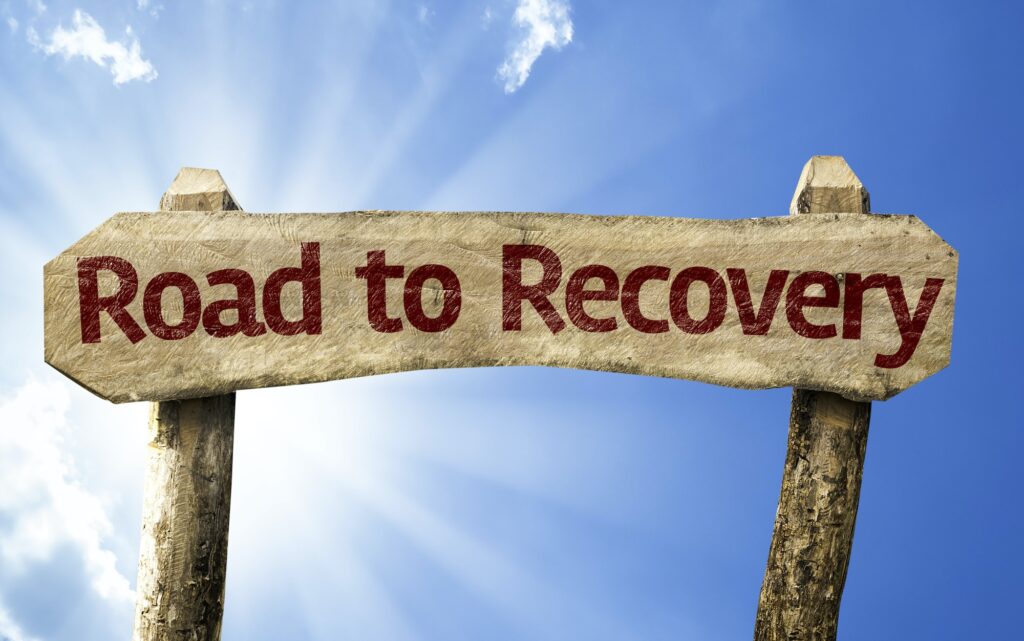If someone close to you has recently completed addiction rehab for drugs or alcohol, you should be extremely happy for her, but mindful of the fact that her journey has only just begun. Addiction recovery is a lifelong endeavor, but the first year is the most difficult hurdle to clear. One of the most common differences between people who are successful in recovery and people who are not is the effectiveness of their support systems. Those closest to addiction recovery patients have the ability to help or hurt the recovery process. If you are looking for guidance in the addiction recovery process, call us today at 772-774-3872

The First Year of Addiction Recovery
As difficult as it is to get through drug or alcohol detox and then rehab, the weeks and months following it are even more challenging. Temptations are everywhere, and alcohol or drugs are also readily available. In many cases, a person in recovery must find new friends, hobbies and hangouts in order to maintain sobriety. As a result, many people in the early stages of addiction recovery often struggle with stress, depression, boredom, loneliness and anxiety. It should come as no surprise that 50 percent of addiction recovery patients are not able to maintain sobriety for a full year.[2]
“Many people in the early stages of addiction recovery often struggle with stress, depression, boredom, loneliness and anxiety.”
Far too often, individuals in recovery are surrounded by people who don’t fully understand the nature of addiction and take sobriety for granted. This can be detrimental to a person remaining on the right path and avoiding relapse. However, with the right mindset and a little effort, you can positively impact your loved one’s addiction recovery.
10 ways to help your loved one succeed in addiction recovery process

Remain Alcohol and Drug Free
Your loved one is going to have enough difficulties remaining sober without you freely drinking alcohol or doing drugs in front of him or her. If you do nothing else, just being a sober person to spend time with will be extremely helpful.
Don’t Enable Substance Abuse
Your friend or family member may be committed to sobriety, but you still need to hold them accountable to their commitment. Don’t look the other way on “just one drink.”
Learn About Addiction and Recovery
This is a difficult period for your friend or family member. Having a better understanding about what she is facing during this time will make it so you can provide better support and will have more patience in the process.
Lend a Non-judgmental Ear
People in recovery need someone to talk to. While they can often find them at meetings, nothing is better than speaking to someone who you already have an established relationship with. By being someone that your friend in recovery can confide in, you can help them get through some of the emotions and mental distress they are likely dealing with.
Forgive Them
When people are grappling with alcoholism or drug addiction, they often hurt the people closest to them. This burdens them with guilt and shame. If you can forgive him or her for the things that happened in the past, you will allow your loved one to continue moving forward free from the guilt of past mistakes. Forgiveness can be very liberating for both parties involved.
Find Substance-Free Activities
When you’ve been drinking or using drugs to have fun for several years, removing these substances from your life will create a void that must be filled with healthier activities. You can be a great help if you can find fun activities that do not include drugs or alcohol. Free time and boredom often lead to relapse.
Attend Meetings
Just as people recovering from addictions have meetings to attend, their friends and family members also have meetings available to them. Groups like Nar-Anon, Al-Anon, Adult Children of Alcoholics, Families Anonymous and SMART Recovery Family and Friends are all available resources for the friends and family members of people with addictions.
Reduce Stress
One of the leading causes of substance abuse is stress. A person in recovery is more vulnerable to stress and highly likely to relapse if repeatedly exposed to stressful situations. Do your best to minimize and relieve stress in healthy ways.
Be Honest
Most people, whether or not they are struggling with addiction, lack self-awareness. Your loved one may not realize that she is falling back into some of the habits that led to substance abuse in the past. She may not notice her warning signs. One of the best ways you can help is by being honest about what you’re seeing, because she may not be as aware as you think.
Be a Positive Role Model
You can’t tell someone that she should be taking care of herself if you aren’t taking care of yourself. Just because you aren’t recovering from an addiction does not mean that you can’t be a positive role model who leads by example. Exercising regularly, eating healthy and living an overall sober and productive life will provide your loved one with a positive example she can strive towards.
At Unity Behavioral Health, we are committed to helping people achieve and maintain sobriety through our addiction recovery process. We are happy to be a resource for you as you try to be an ally in your loved one’s journey through rehab. Our professionals are standing by ready to answer any questions or help in any way.
[2] https://www.ncbi.nlm.nih.gov/pubmed/17986709








